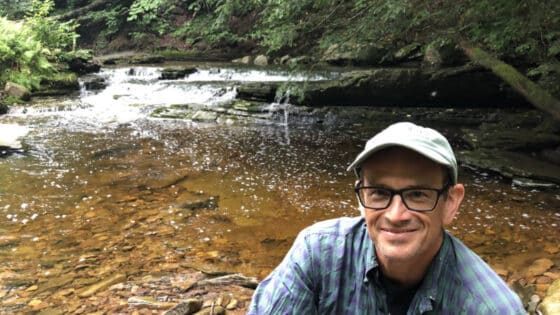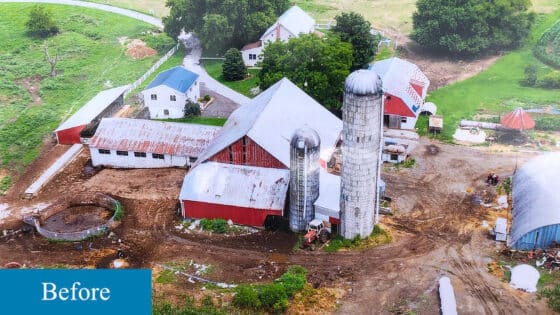FOR IMMEDIATE RELEASE: June 26, 2001
Harrisburg, Pa. – Governor Tom Ridge today presented the Stroud Water Research Center of Chester County, Pa. with the Governor’s Award for Watershed Stewardship. Stroud President Bernard W. Sweeney remarked on receiving the award that “It’s a great honor to be recognized for our research over the years concerning the effects of land use on water and habitat quality of Pennsylvania’s streams and rivers.”
The Stroud Water Research Center was named one of the 25 winners out of 75 nominees considered for the honor — the first year it has been awarded. Eligible were any business, government agency, non-profit organization or individual engaged in water restoration efforts in Pennsylvania.
The ceremony was held in Harrisburg at the Forum Auditorium. Following the ceremony a reception was held in the Capitol East Wing. During the reception, State Representative of the 158th District, Chris Ross, presented a citation from the PA House of Representatives commending the Center for it’s work on watersheds throughout the Commonwealth.
State Senator of the 19th District, Robert J. Thompson sponsored a letter of congratulations on behalf of the Senate of the Commonwealth of Pennsylvania.
The Center, which was founded 35 years ago as a field station of the Academy of Natural Sciences, is known throughout the world for its research on streams and rivers. Besides its work on southern Chester County’s White Clay Creek, which is designated a “Wild and Scenic” river and has also, through Stroud’s efforts, achieved the status of an “exception value” stream, the Center has ongoing research projects on many rivers in Pennsylvania, including the Susquehanna.
An important part of the Center’s mission is to educate the public about water and stream ecosystems and the critical role communities can play as stewards of their watersheds.
In addition to its work in Pennsylvania, the Center is involved in research across the nation, and it maintains a permanent station in Costa Rica. Among its current projects is a six-year study of the streams, rivers and reservoirs that provide New York City’s drinking water.



